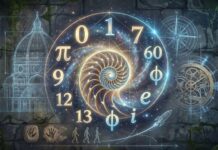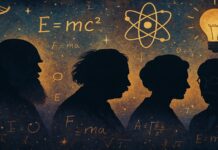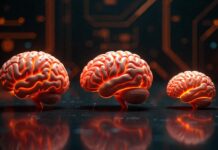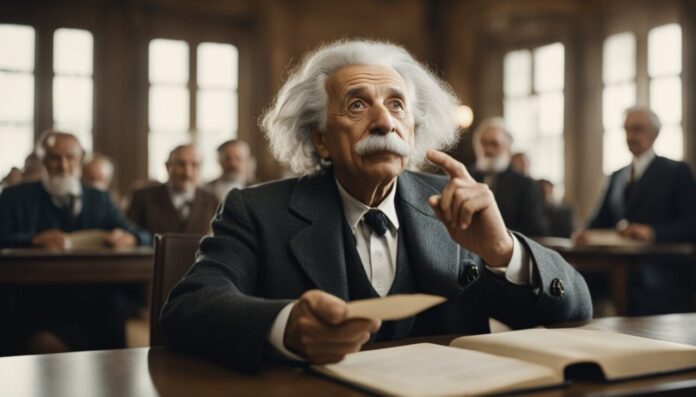
Albert Einstein is one of the most famous scientists in history, known for his theories and contributions to the field of physics.
However, there are several interesting and controversial facts about Einstein that many people may not be aware of.
One of the most controversial aspects of Einstein’s life is his relationships. Despite being married to his first wife, Mileva Marić, Einstein had several affairs throughout his life, including one with his cousin Elsa Einstein, whom he later married.
This has led to questions about Einstein’s character and morality and has caused some to view him in a negative light.
Another interesting fact about Einstein is his political views. Einstein was a pacifist and a socialist, and he was very vocal about his opposition to war and violence.
He also spoke out against racism and discrimination and was a supporter of civil rights.
However, his political views often put him at odds with the government and other powerful institutions, and he was even investigated by the FBI for his alleged ties to communism.
Interesting fact: Einstein's brain was preserved after his death and has been the subject of scientific study to this day.
Okay, so let’s start with the full list. Here are the top 10 interesting and sometimes controversial facts about Einstein.
1. Einstein Married His First Cousin
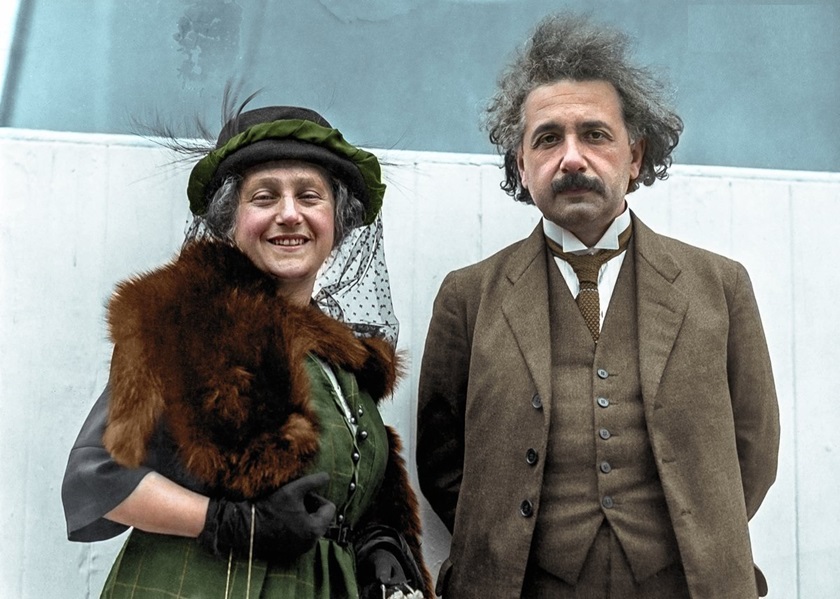
One of the most controversial facts about Einstein is that he married his first cousin, Elsa Einstein. Their mothers were sisters. They were also related through their fathers as they were also first cousins.
Their marriage was not well-received by the public, as it was considered taboo and even illegal in some places. However, Einstein defended his marriage, stating that he and Elsa had a strong emotional connection and shared interests in science and music.
Interestingly, Einstein had also considered marrying Elsa’s daughter, Ilse Einstein. This happened 1 year before he married Elsa in 1919.
2. Einstein’s Relationship with Mileva Marić
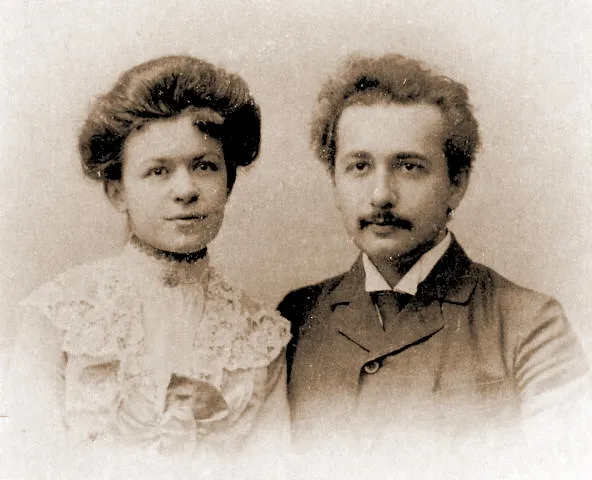
Collaboration and Controversy
Einstein’s first wife, Mileva Marić, was also a physicist and mathematician. They met while studying at the Polytechnic in Zurich, Switzerland, and began collaborating on scientific work.
In 1905, Einstein published his famous paper on special relativity, but some historians argue that Marić played a significant role in its development.
Their collaboration continued after they got married in 1903, but it was not always smooth sailing.
In one letter he wrote, “I treat my wife as an employee whom I cannot fire.“
This statement, along with other evidence, suggests that their relationship was strained both personally and professionally.
Interesting fact: Some historians believe that Marić's contributions to Einstein's work were significant enough to warrant co-authorship on his papers.
Personal and Professional Strain
Einstein and Marić’s relationship became increasingly strained over time. They had two sons together, but their marriage was plagued by infidelity and disagreements. In 1914, they separated and eventually divorced in 1919.
The personal strain between Einstein and Marić had an impact on their professional relationship as well. Marić struggled to find work as a physicist and mathematician after the divorce, and some historians believe that Einstein may have intentionally hindered her career.
3. Einstein’s Stance on Pacifism and World War II
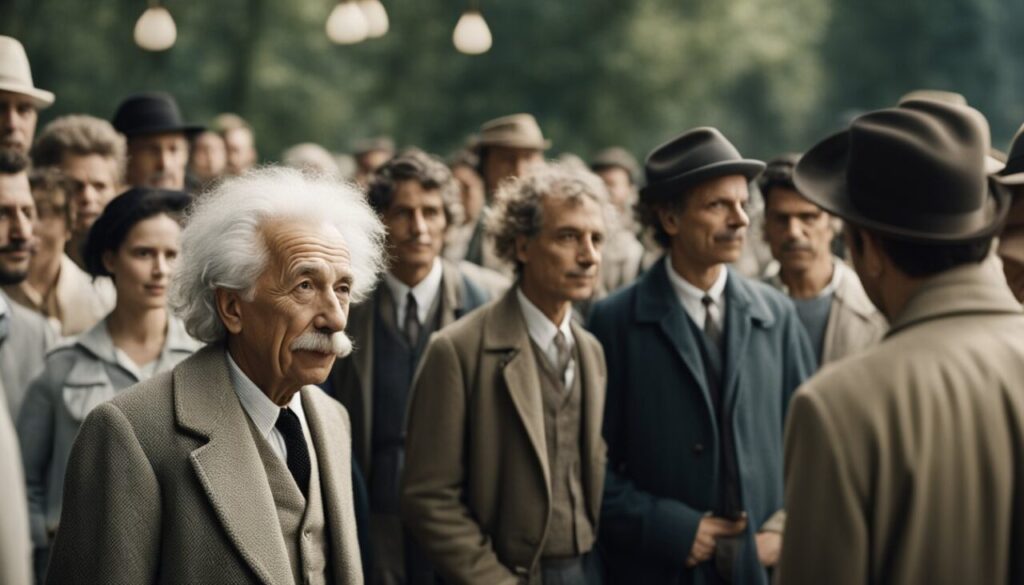
Albert Einstein was a well-known pacifist who believed in non-violent solutions to conflicts. However, during World War II, he shifted his stance towards advocating for armed defense.
Shift from Pacifism to Advocacy for Armed Defense
Einstein’s shift towards advocating for armed defense was due to his belief that the German Empire posed a serious threat to the world.
He believed that a strong military was necessary to defend against the aggressive actions of the German Empire.
4. Einstein Renounced His German Citizenship
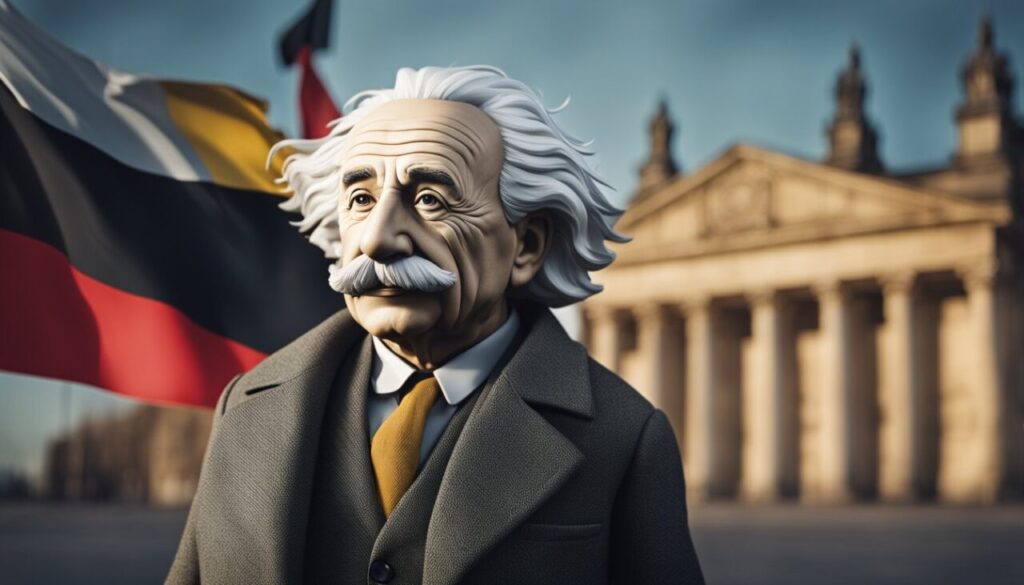
In 1896, Einstein was born in Ulm, Germany, and he lived there until 1914. However, in 1933, the year Adolf Hitler came to power in Germany, Einstein was visiting the United States.
He learned that the Nazi regime had confiscated his property and burned his books. In response, Einstein decided to renounce his German citizenship and never return to his homeland.
In 1933, Einstein was in Belgium when he made that decision.
He had been offered a position at the University of Leuven, but he declined it, citing his opposition to the Nazi regime.
He then traveled to England, where he stayed briefly before moving to the United States. In 1940, he became a citizen of the United States.
Interesting fact: Einstein's renunciation of his German citizenship was a significant event in his life, and it reflected his strong opposition to the Nazi regime. It also marked the beginning of his long association with the United States.
5. Involvement in the Atomic Bomb Development

The Einstein-Szilard Letter
Albert Einstein’s involvement in the development of the atomic bomb is a rather interesting topic. In 1939, Einstein and his colleague Leó Szilárd wrote a letter to President Franklin D. Roosevelt, urging him to fund research into the development of an atomic bomb before Nazi Germany could do so.
This letter led to the creation of the Manhattan Project, which ultimately resulted in the bombing of Hiroshima and Nagasaki.
Interestingly, Einstein did not work directly on the Manhattan Project, as his pacifist beliefs conflicted with the project’s goals.
However, he did play a significant role in its creation through his letter to the President.
Interesting fact: Einstein's letter to President Roosevelt was written in August 1939, before World War II had officially begun.
Opposition to Nuclear Proliferation Post-War
After the atomic bombs were dropped on Japan, Einstein became increasingly concerned about the potential for nuclear proliferation. He spoke out against the use of nuclear weapons and called for international cooperation to prevent their use in the future.
Einstein was a vocal advocate for nuclear disarmament and even became a member of the Emergency Committee of Atomic Scientists, which aimed to educate the public about the dangers of nuclear weapons.
Interesting fact: In 1955, Einstein signed the Russell-Einstein Manifesto, which called for an end to nuclear weapons testing and the start of disarmament negotiations between the world's superpowers.
6. Einstein’s FBI File and Surveillance
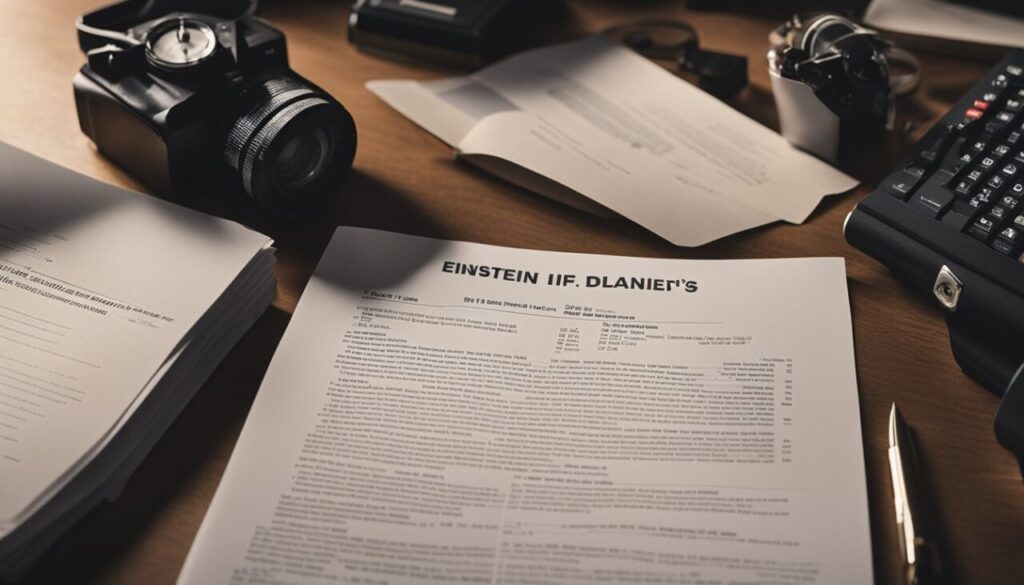
Suspicion of Communist Sympathies
As a prominent figure in the scientific community, Einstein was not immune to political scrutiny.
His involvement in various left-wing and pacifist organizations, as well as his vocal opposition to McCarthyism, led to suspicions of Communist sympathies.
In 1933, the FBI began monitoring his activities and opened a file on him.
The FBI’s interest in Einstein intensified during the Cold War, and they conducted extensive surveillance on him and his associates.
They even went so far as to tap his phone and intercept his mail. Despite their efforts, however, they never found any evidence of Communist activity.
Interesting fact: Einstein's FBI file was over 1,400 pages long and contained information on his personal life, political activities, and scientific work.
7. Debate Over Einstein’s Belief in God
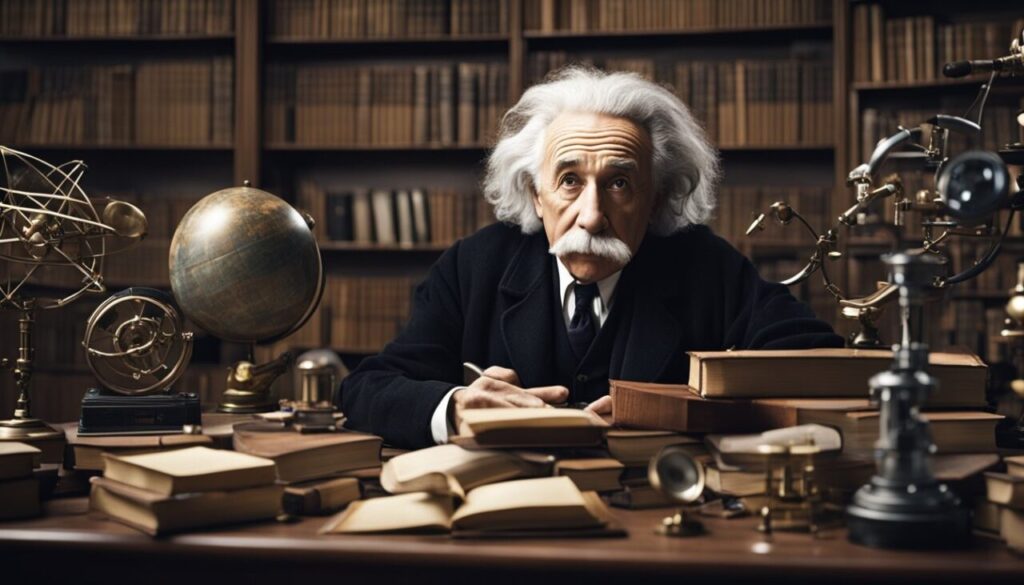
While he has been described as an agnostic or even an atheist, he also spoke about his belief in a “Spinoza’s God.”
Einstein’s concept of God was not based on any specific religious doctrine, but rather on his own interpretation of the universe and its laws.
In one way Einstein believed in a God who created the universe and its laws, but did not intervene in the affairs of humans.
He saw the universe as a “cosmic religious feeling” and believed that science and religion could coexist.
However, he rejected the idea of a personal God who answered prayers or performed miracles.
Interesting fact: In a letter to philosopher Eric Gutkind, Einstein wrote, "The word God is for me nothing more than the expression and product of human weaknesses, the Bible a collection of honorable, but still primitive legends."
8. Challenges to Einstein’s Theory of Relativity

When Albert Einstein first published his special theory of relativity in 1905, it was met with skepticism from the scientific community.
Many scientists found it difficult to accept that time and space were not absolute and that the speed of light was a constant. Some even went as far as to call it “Jewish science” due to Einstein’s ethnicity.
Interesting fact: It wasn't until 1919, when British astronomers observed the bending of starlight during a solar eclipse, that Einstein's theory gained widespread acceptance.
9. Einstein’s Intellectual Rivalries
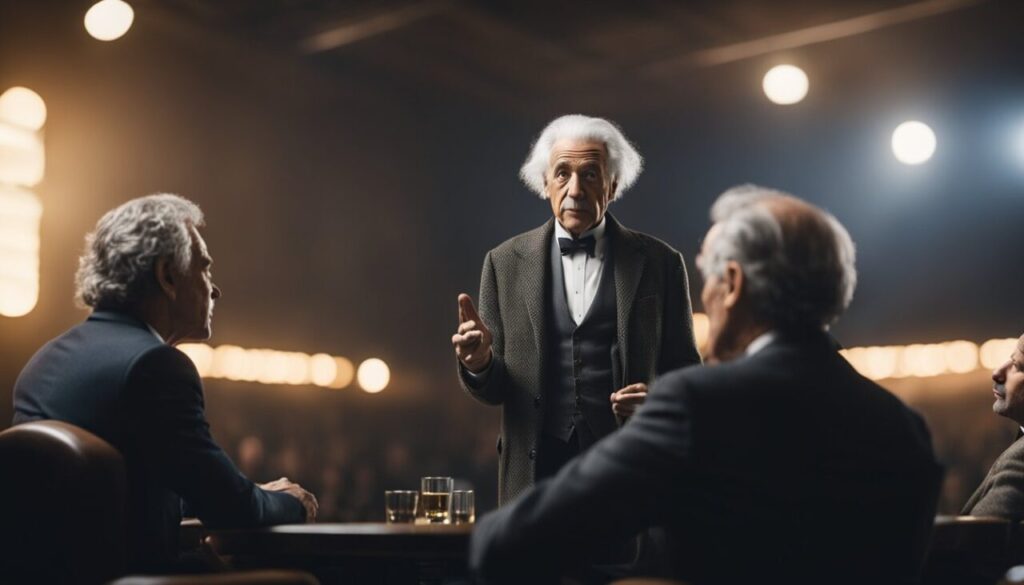
Disputes with Quantum Mechanics Pioneers
Einstein was one of the pioneers of quantum mechanics, but he had several disagreements with other physicists who were also working in the field.
One of the most famous disputes was with Niels Bohr, who was a close friend of Einstein. Bohr was a proponent of the Copenhagen interpretation of quantum mechanics, which Einstein vehemently disagreed with.
Einstein believed that the Copenhagen interpretation was incomplete and that there had to be a more fundamental theory underlying it.
Public and Academic Disagreements
Einstein’s intellectual rivalries were not limited to the field of quantum mechanics.
He also had disagreements with other physicists on various topics.
One of the most famous was with Philipp Lenard, who was a Nobel laureate and a proponent of the Aryan Physics movement.
Lenard believed that Jewish physicists, including Einstein, were corrupting physics with their theories. Einstein, on the other hand, believed that physics should be free of any political or racial biases.
Interesting fact: The disagreement between Einstein and Lenard became so heated that Lenard called Einstein a "Jewish fraud."
10. Misconceptions About Einstein’s Academic Performance
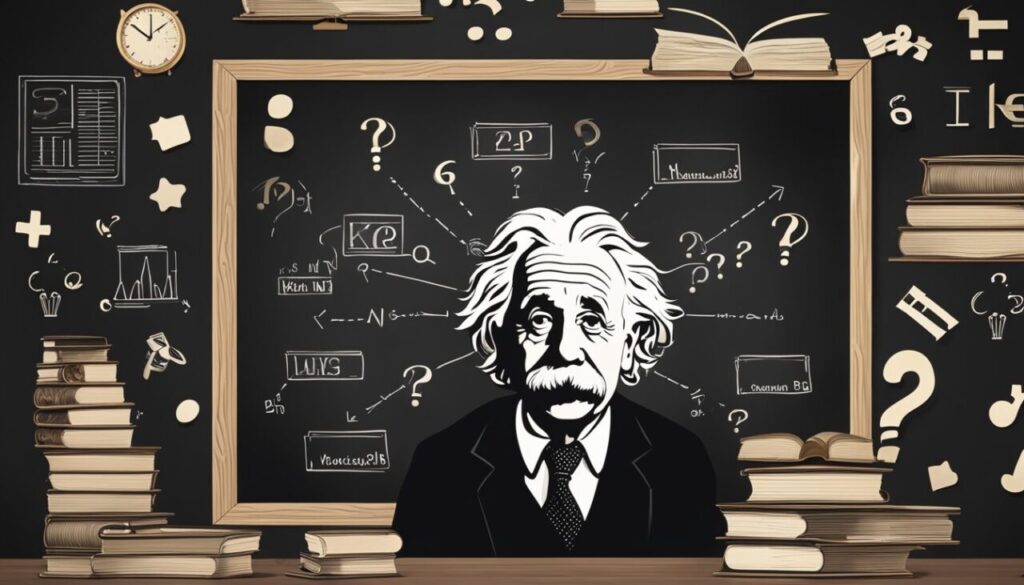
Myth of the Failing Student
One of the most common misconceptions about Einstein is that he was a poor student. However, this is far from the truth. While Einstein did have some difficulty with the traditional methods of education, he was still a gifted student.
In fact, he was able to skip several grades and enroll in the Swiss Federal Polytechnic School in Zurich at the age of 16.
The myth of Einstein being a failing student is likely due to his rebellious nature and his dislike for rote learning.
He often clashed with his teachers and was known to challenge their authority. This led to him being expelled from school at one point, but he was later readmitted and eventually graduated with top honors.
Reality of Academic Achievements
Contrary to popular belief, Einstein was not just a theoretical physicist but also made significant contributions to other fields of science.
He published over 300 scientific papers during his lifetime and received the Nobel Prize in Physics in 1921 for his work on the photoelectric effect.
In addition, Einstein held several academic positions throughout his career, including professorships at the University of Zurich, Charles University in Prague, and the Institute for Advanced Study in Princeton.
He was also a member of numerous scientific societies and received honorary degrees from several universities around the world.
Interesting fact: In 1926, Einstein and his former student, Leo Szilard, patented a unique type of refrigerator design that utilized the absorption of gases to create cooling. While their design was not widely adopted, it contributed to the understanding of thermodynamics and provided insights into refrigeration technology.
We hope you enjoyed this article. If you have time you might also like:
















